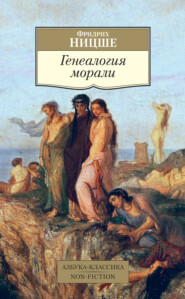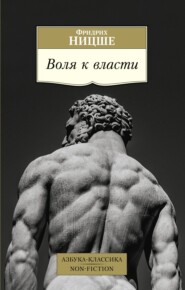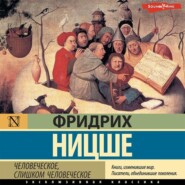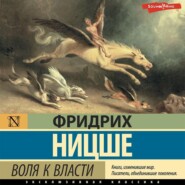По всем вопросам обращайтесь на: info@litportal.ru
(©) 2003-2024.
✖
We Philologists
Настройки чтения
Размер шрифта
Высота строк
Поля
There has been an age-long battle between the Germans and antiquity, i. e., a battle against the old culture. It is certain that precisely what is best and deepest in the German resists it. The main point, however, is that such resistance is only justifiable in the case of the Romanised culture; for this culture, even at that time, was a falling-off from something more profound and noble. It is this latter that the Germans are wrong in resisting.
42
Everything classic was thoroughly cultivated by Charles the Great, whilst he combated everything heathen with the severest possible measures of coercion. Ancient mythology was developed, but German mythology was treated as a crime. The feeling underlying all this, in my opinion, was that Christianity had already overcome the old religion · people no longer feared it, but availed themselves of the culture that rested upon it. But the old German gods were feared.
A great superficiality in the conception of antiquity – little else than an appreciation of its formal accomplishments and its knowledge – must thereby have been brought about. We must find out the forces that stood in the way of increasing our insight into antiquity. First of all, the culture of antiquity is utilised as an incitement towards the acceptance of Christianity · it became, as it were, the premium for conversion, the gilt with which the poisonous pill was coated before being swallowed. Secondly, the help of ancient culture was found to be necessary as a weapon for the intellectual protection of Christianity. Even the Reformation could not dispense with classical studies for this purpose.
The Renaissance, on the other hand, now begins, with a clearer sense of classical studies, which, however, are likewise looked upon from an anti-Christian standpoint: the Renaissance shows an awakening of honesty in the south, like the Reformation in the north. They could not but clash; for a sincere leaning towards antiquity renders one unchristian.
On the whole, however, the Church succeeded in turning classical studies into a harmless direction. the philologist was invented, representing a type of learned man who was at the same time a priest or something similar. Even in the period of the Reformation people succeeded in emasculating scholarship. It is on this account that Friedrich August Wolf is noteworthy he freed his profession from the bonds of theology. This action of his, however, was not fully understood; for an aggressive, active element, such as was manifested by the poet-philologists of the Renaissance, was not developed. The freedom obtained benefited science, but not man.
43
It is true that both humanism and rationalism have brought antiquity into the field as an ally; and it is therefore quite comprehensible that the opponents of humanism should direct their attacks against antiquity also. Antiquity, however, has been misunderstood and falsified by humanism · it must rather be considered as a testimony against humanism, against the benign nature of man, &c. The opponents of humanism are wrong to combat antiquity as well; for in antiquity they have a strong ally.
44
It is so difficult to understand the ancients. We must wait patiently until the spirit moves us. The human element which antiquity shows us must not be confused with humanitarianism. This contrast must be strongly emphasised: philology suffers by endeavouring to substitute the humanitarian, young men are brought forward as students of philology in order that they may thereby become humanitarians. A good deal of history, in my opinion, is quite sufficient for that purpose. The brutal and self-conscious man will be humbled when he sees things and values changing to such an extent.
The human element among the Greeks lies within a certain naiveté, through which man himself is to be seen – state, art, society, military and civil law, sexual relations, education, party. It is precisely the human element which may be seen everywhere and among all peoples, but among the Greeks it is seen in a state of nakedness and inhumanity which cannot be dispensed with for purposes of instruction. In addition to this, the Greeks have created the greatest number of individuals, and thus they give us so much insight into men, – a Greek cook is more of a cook than any other.
45
I deplore a system of education which does not enable people to understand Wagner, and as the result of which Schopenhauer sounds harsh and discordant in our ears. such a system of education has missed its aim.
46
(The Final Draft of the First Chapter.)
Il faut dire la vérité et s'immoler – Voltaire.
Let us suppose that there were freer and more superior spirits who were dissatisfied with the education now in vogue, and that they summoned it to their tribunal, what would the defendant say to them? In all probability something like this: "Whether you have a right to summon anyone here or not, I am at all events not the proper person to be called. It is my educators to whom you should apply. It is their duty to defend me, and I have a right to keep silent. I am merely what they have made me."
These educators would now be hauled before the tribunal, and among them an entire profession would be observed · the philologists. This profession consists in the first place of those men who make use of their knowledge of Greek and Roman antiquity to bring up youths of thirteen to twenty years of age, and secondly of those men whose task it is to train specially-gifted pupils to act as future teachers —i. e., as the educators of educators. Philologists of the first type are teachers at the public schools, those of the second are professors at the universities.
The first-named philologists are entrusted with the care of certain specially-chosen youths, those who, early in life, show signs of talent and a sense of what is noble, and whose parents are prepared to allow plenty of time and money for their education. If other boys, who do not fulfil these three conditions, are presented to the teachers, the teachers have the right to refuse them. Those forming the second class, the university professors, receive the young men who feel themselves fitted for the highest and most responsible of callings, that of teachers and moulders of mankind; and these professors, too, may refuse to have anything to do with young men who are not adequately equipped or gifted for the task.
If, then, the educational system of a period is condemned, a heavy censure on philologists is thereby implied: either, as the consequence of their wrong-headed view, they insist on giving bad education in the belief that it is good; or they do not wish to give this bad education, but are unable to carry the day in favour of education which they recognise to be better. In other words, their fault is either due to their lack of insight or to their lack of will. In answer to the first charge they would say that they knew no better, and in answer to the second that they could do no better. As, however, these philologists bring up their pupils chiefly with the aid of Greek and Roman antiquity, their want of insight in the first case may be attributed to the fact that they do not understand antiquity, and again to the fact that they bring forward antiquity into the present age as if it were the most important of all aids to instruction, while antiquity, generally speaking, does not assist in training, or at all events no longer does so.
On the other hand, if we reproach our professors with their lack of will, they would be quite right in attributing educational significance and power to antiquity; but they themselves could not be said to be the proper instruments by means of which antiquity could exhibit such power. In other words, the professors would not be real teachers and would be living under false colours, but how, then, could they have reached such an irregular position? Through a misunderstanding of themselves and their qualifications. In order, then, that we may ascribe to philologists their share in this bad educational system of the present time, we may sum up the different factors of their innocence and guilt in the following sentence: the philologist, if he wishes for a verdict of acquittal, must understand three things antiquity, the present time, and himself · his fault lies in the fact that he either does not understand antiquity, or the present time, or himself.
47
It is not true to say that we can attain culture through antiquity alone. We may learn something from it, certainly; but not culture as the word is now understood. Our present culture is based on an emasculated and mendacious study of antiquity. In order to understand how ineffectual this study is, just look at our philologists · they, trained upon antiquity, should be the most cultured men. Are they?
48
Origin of the philologist. When a great work of art is exhibited there is always some one who not only feels its influence but wishes to perpetuate it. The same remark applies to a great state – to everything, in short, that man produces. Philologists wish to perpetuate the influence of antiquity and they can set about it only as imitative artists. Why not as men who form their lives after antiquity?
49
The decline of the poet-scholars is due in great part to their own corruption: their type is continually arising again; Goethe and Leopardi, for example, belong to it. Behind them plod the philologist-savants. This type has its origin in the sophisticism of the second century.
50
Ah, it is a sad story, the story of philology! The disgusting erudition, the lazy, inactive passivity, the timid submission. – Who was ever free?
51
When we examine the history of philology it is borne in upon us how few really talented men have taken part in it. Among the most celebrated philologists are a few who ruined their intellect by acquiring a smattering of many subjects, and among the most enlightened of them were several who could use their intellect only for childish tasks. It is a sad story · no science, I think, has ever been so poor in talented followers. Those whom we might call the intellectually crippled found a suitable hobby in all this hair-splitting.
52
The teacher of reading and writing, and the reviser, were the first types of the philologist.
53
Friedrich August Wolf reminds us how apprehensive and feeble were the first steps taken by our ancestors in moulding scholarship – how even the Latin classics, for example, had to be smuggled into the university market under all sorts of pretexts, as if they had been contraband goods. In the "Gottingen Lexicon" of 1737, J. M. Gesner tells us of the Odes of Horace: "ut imprimis, quid prodesse in severioribus studiis possint, ostendat."
54
I was pleased to read of Bentley "non tam grande pretium emendatiunculis meis statuere soleo, ut singularem aliquam gratiam inde sperem aut exigam."
Newton was surprised that men like Bentley and Hare should quarrel about a book of ancient comedies, since they were both theological dignitaries.
55
Horace was summoned by Bentley as before a judgment seat, the authority of which he would have been the first to repudiate. The admiration which a discriminating man acquires as a philologist is in proportion to the rarity of the discrimination to be found in philologists. Bentley's treatment of Horace has something of the schoolmaster about it It would appear at first sight as if Horace himself were not the object of discussion, but rather the various scribes and commentators who have handed down the text: in reality, however, it is actually Horace who is being dealt with. It is my firm conviction that to have written a single line which is deemed worthy of being commented upon by scholars of a later time, far outweighs the merits of the greatest critic. There is a profound modesty about philologists. The improving of texts is an entertaining piece of work for scholars, it is a kind of riddle-solving; but it should not be looked upon as a very important task. It would be an argument against antiquity if it should speak less clearly to us because a million words stood in the way!
56
A school-teacher said to Bentley, "Sir, I will make your grandchild as great a scholar as you are yourself." "How can you do that," replied Bentley, "when I have forgotten more than you ever knew?"
57
Bentley's clever daughter Joanna once lamented to her father that he had devoted his time and talents to the criticism of the works of others instead of writing something original. Bentley remained silent for some time as if he were turning the matter over in his mind. At last he said that her remark was quite right; he himself felt that he might have directed his gifts in some other channel. Earlier in life, nevertheless, he had done something for the glory of God and the improvement of his fellow-men (referring to his "Confutation of Atheism"), but afterwards the genius of the pagans had attracted him, and, despairing of attaining their level in any other way, he had mounted upon their shoulders so that he might thus be able to look over their heads.
58
Bentley, says Wolf, both as man of letters and individual, was misunderstood and persecuted during the greater part of his life, or else praised maliciously.
Markland, towards the end of his life – as was the case with so many others like him – became imbued with a repugnance for all scholarly reputation, to such an extent, indeed, that he partly tore up and partly burnt several works which he had long had in hand.
Wolf says: "The amount of intellectual food that can be got from well-digested scholarship is a very insignificant item."
In Winckelmann's youth there were no philological studies apart from the ordinary bread-winning branches of the science – people read and explained the ancients in order to prepare themselves for the better interpretation of the Bible and the Corpus Juris.
59

















